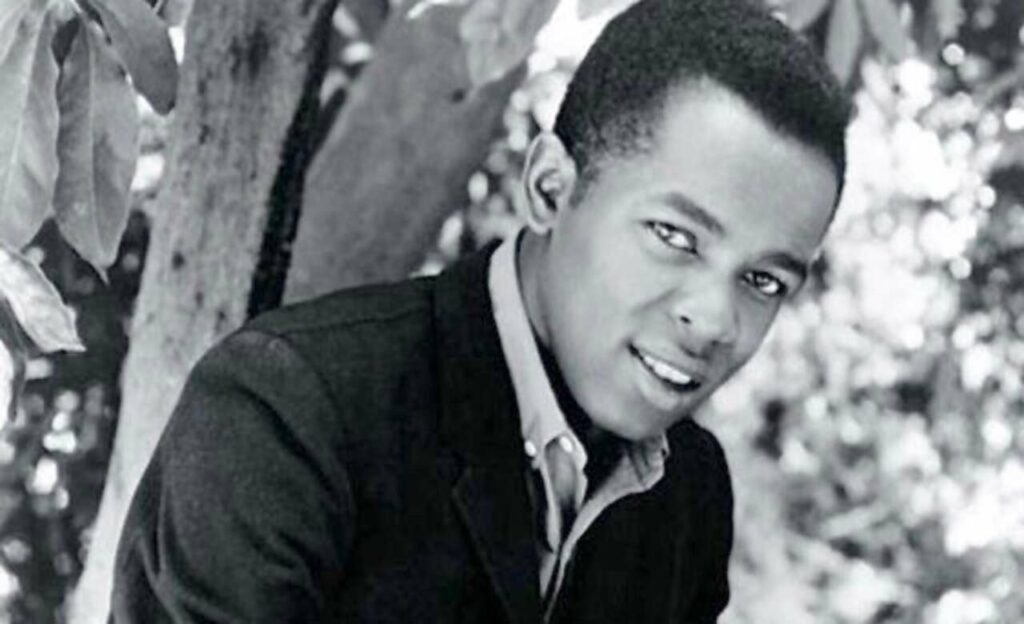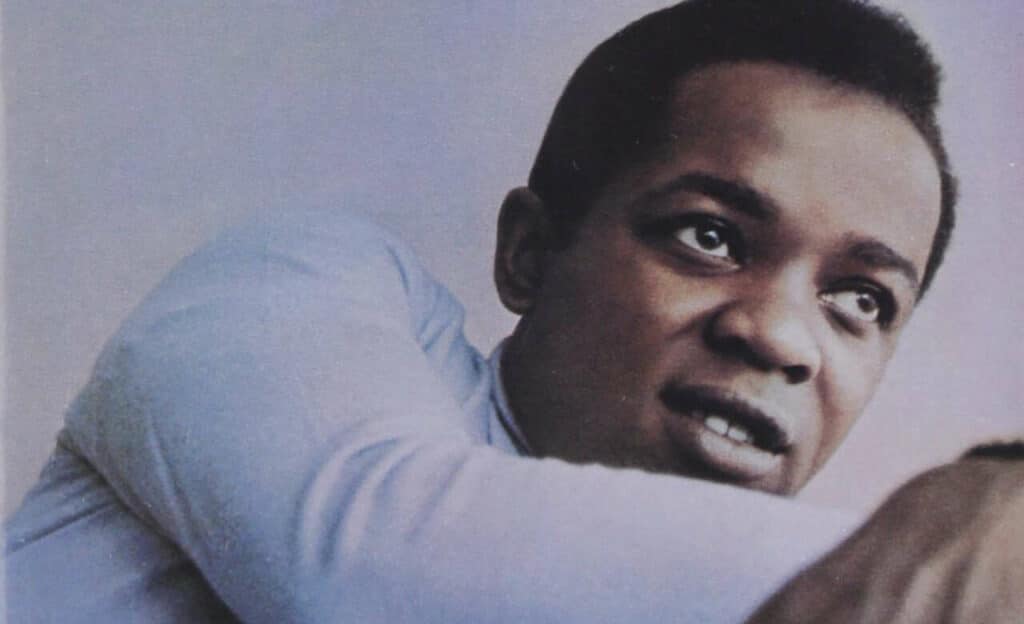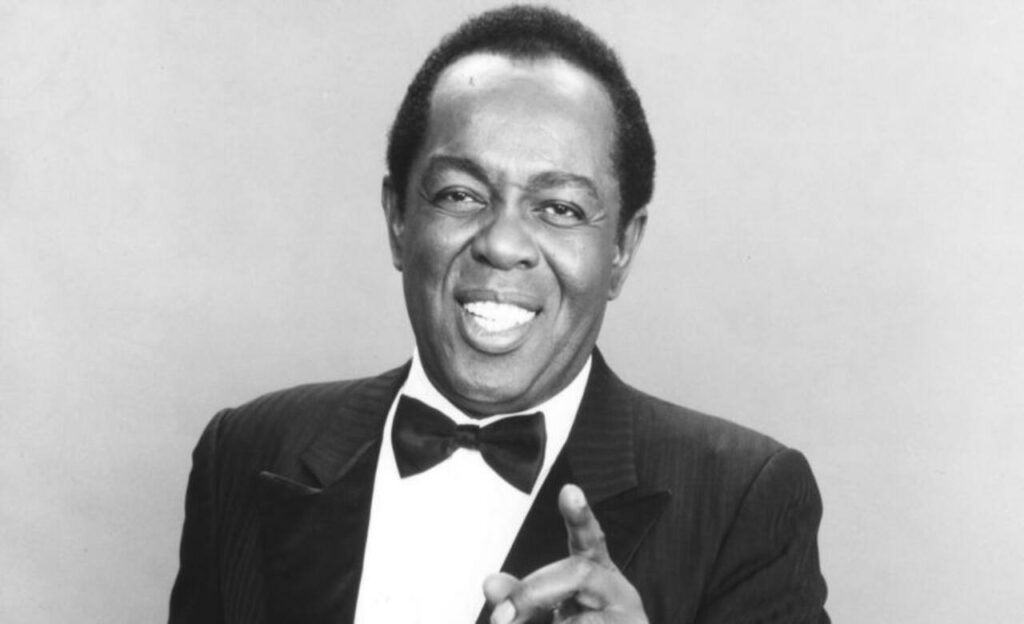Lou Rawls is a very famous rhythm and blues (R&B) artist with a long career and huge generosity. His soulful singing career spanned over 50 years. And his philanthropy includes helping to raise over $150 million for the United Negro College Fund (UNCF). The artist's work began after his life was almost cut short in 1958 in a car accident. As the performer stated:

"Everything that happens, happens for a reason." Grammy-winning singer Lou Rawls had a smooth singing style and a four-octave range that he used to perform in many musical genres, including gospel, jazz, R&B, soul and pop. He recorded about 75 albums, sold about 50 million records. And also performed with hundreds of performances "live" until his death. Rawls was also identified with the Parade of the Stars telethon, which he created and hosted for 25 years.
Childhood and youth Lou Rawls
Lou Rawls was born in 1933 in the city of Chicago, where many famous blues musicians live. The son of a Baptist minister, Lou learned to sing in the church choir from an early age. For a number of reasons, the grandmother (on the paternal side) was mainly involved in raising the boy. He began his singing career as a child in the choir of his father's church.
Rawls' singing soon caught the attention of the people of Chicago. He was childhood friends with future soul singing star Sam Cooke. The boys were members of the local Teenage Kings of Harmony before Rawls joined another local gospel group, Holy Wonders. From 1951 to 1953 Rawls replaced Cook in another Chicago group, Highway QC.
In 1953, Lou Rawls moved to a national group. And he joined the Chosen Gospel Singers and moved to Los Angeles. With them, Rawls first recorded compositions in a recording studio in 1954. He soon joined another evangelical group, the Pilgrim Travelers, also with Cook. His stay in the group was suspended by service in the landing troops of the American army. After being fired, he returned to the Pilgrim Travelers and continued to record songs and tour.
An accident that changed fate

Rawls' life changed in 1958 when he was in a car accident while traveling with the band. The driver of the car in which Cook and Lou were traveling lost control, and it flew off a cliff. Rawls suffered numerous fractures, a severe concussion, and nearly died. He remained in a coma for several days. After a few days in a coma of almost a year of rehabilitation, Rawls had a new outlook on life. In 1959, the group broke up due to differences in views on creativity. And Rawls decided to take his chance and start a solo career. Abandoning gospel songs, he focused on more secular forms of music.
The artist recorded several author's singles for Candix Label. A West Hollywood coffee shop performance seen by producer Nick Venet led to a deal with Capitol Records. The first album, I'd Rather Drink Dirty Water (Stormy Monday), was released in 1962. It was a standard in the jazz and blues genres. Rawls went on to record two soul records, Tobacco Road and Lou Rawls Soulin.
At the peak of glory
The heyday of Rawls' singing career was in the 1960s and 1970s, when he focused mainly on R&B and pop music. He had an unusual manner in performances - discussing the song being performed during the loss and including his monologues in it. Matt Shudel of (Washington Post) quoted Rawls as explaining the origin of this phenomenon: “I worked in small clubs and coffee shops. I tried to sing up there, and people were talking very loudly. To get their attention, in between singing I would start reciting the words to the songs. Then I started making up little stories about the song and what it refers to."
Rawls showed off his skills on the hit album Lou Rawls Live (1966). It was recorded in a studio with an audience. That same year, he released his first R&B single, Love Is a Hurtin' Thing. The single Dead end Street won him his first Grammy in 1967.
Signing to the new MGM label, Rawls moved more into the pop music genre. Thanks to the album A Natural Man (1971), he received a second Grammy Award. In the 1970s, Rawls signed with the Philadelphia International label. Collaboration with the label's songwriters and producers (Kenny Gramble and Leon Huff) resulted in Rawls' hit You'll Never Find. This disco ballad reached #2 on the pop charts and #1 on the R&B charts in 1976.
In 1977, Rawls had another hit, Lady Love, from the platinum album All Things In Time. He received a third Grammy Award for the platinum album Unmistakably Luu (1977). Rawls had several more hits with the Philadelphia International, including Let Me Be Good to You and I Wish You Belonged to Me.
Creation of the Parade of Stars telethon

Rawls used his fame in a lucrative position as an advertising spokesman for the giant Anheuser-Busch brewery, maker of Budweiser beer. The brewery supported the singer in what became the most recognizable and important thing in his later career. It is the organization of the annual Parade of Stars telethon for the benefit of the United Negro College Fund. Rawls was also the host of a television program that ran from 3 to 7 hours. It featured top performers in various musical styles.
In 1998, the Parade of the Stars (renamed "Evening of the Stars" the same year) was broadcast on 60 TV channels with a potential viewership of about $90 million. Then USA Today estimated the total income from the telethon since its inception at $175 million. The money went to a group of small, historically black colleges and universities. And they opened their doors to students with economic disabilities. Tens of thousands of African American students simply owe their education to Lou Rawls.
Lou Rawls: TV work
Rawls was a frequent guest on television talk shows in the 1970s. He has also acted as an actor in both film and television. And also voiced the most popular cartoons and commercials. Rawls has appeared in about 20 films, including Leaving Las Vegas and The Host. He also played roles in the television series Baywatch Nights. He voiced such animated series as "Garfield", "Fatherhood" and "Hey Arnold!".
In addition to being busy on television, Rawls also continued to record new hits. In the 1990s, he focused mainly on new directions - jazz and blues. In addition to Portrait of the Blues (1993), Rawls recorded three albums for the Blue Note jazz label in the late 1980s and early 1990s. His first hit in over 10 years was At Last (1989), which hit #1 on the jazz charts. Rawls began recording gospel albums again in the early 2000s, including How Great Thou Art (2003).
Noteworthy Priorities
Throughout the 1980s and 1990s, the famous singer basically established himself as a generous sponsor. At one time, he did not have the opportunity to study where he wanted, so in adulthood, having collected the capital of influential friends, Rawls began to actively engage in charity and volunteering. He believed that the education of America's youth was a priority. Through his efforts as Honorary Chairman, he has raised over $150 million for the College Foundation (UNCF). He achieved this by hosting the Parade of the Stars television telethon every January. Since 1980, Rawls has invited performers to perform "live" on shows to raise money for the fund. Among the guests were: Marilyn McGoo, Gladys Knight, Ray Charles, Patti LaBelle, Luther Vandross, Peabo Bryson, Sheryl Lee Ralph and others.
In 1989, in Chicago (Rawls' hometown), a street was named after him. South Wentworth Avenue was renamed Lou Rolls Drive. And in 1993, Rawls attended the groundbreaking ceremonies for the Lou Rawls Theater and Cultural Center. Its cultural center includes a library, two cinemas, a restaurant, a 1500-seat theater and a roller skating rink. The center was built on the original site of the Theater Royal on Chicago's south side. The gospel and blues played at the Theater Royal in the 1950s inspired the young Lou Rawls. Now his name is immortalized at the place where it all began.
When asked in 1997 by the American Business Review to explain his tenacity in show business, Lou Rawls replied, “I didn't try to change every time the music changed. I just stayed in the pocket where I was because it was convenient and people liked it.” Of course, Rawls has become something of an American institution. With a performing career spanning five decades, a lengthy stint as host of fundraising Parade of Stars, and a comfortable baritone singing voice, Rawls was one of the rare artists who carved a permanent spot on the American music scene. In the late 1990s, he already had 60 albums.
Death of Lou Rawls
Rawls was diagnosed with lung cancer in 2004. A year later, he was also diagnosed with brain cancer. Due to illness, his career was suspended, which continued in 2005. He died on January 6, 2006 in Los Angeles, California at age 72. Rawls is survived by his third wife, Nina Malek Inman, sons Lou Jr. and Aiden, daughters Luanne and Kendra, and four grandchildren.



